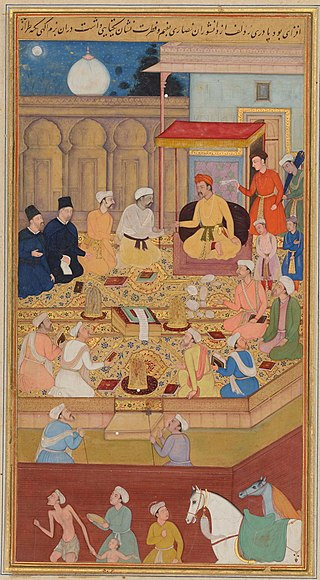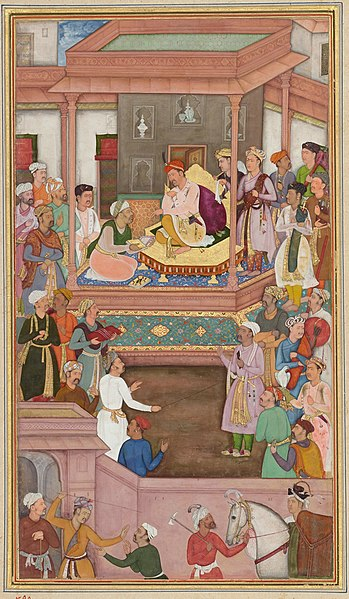Introduction
Jalaluddin Muhammad Akbar, the Mughal emperor who reigned from 1556 to 1605 CE, is regarded as one of the greatest emperors in Indian history. When he was crowned emperor, he was just 13 years old. His representative was Bairam Khan. By establishing a secular state based on the values of religious tolerance, liberalism, and political unanimity, he not only increased the size of the empire but also helped to strengthen it. The Mughal Empire achieved its height of pride and greatness during his rule. Everything for Akbar first appeared dire and hopeless. He overcame difficulties, nevertheless, and guided the Mughal Empire to greatness and strength.
Akbar has a long-term outlook for his empire. He understood that maintaining the empire’s power structure was more crucial than expanding it. Also, he implemented policies that emphasized interdenominational ideas in order to gain the respect and allegiance of the empire’s enemies.
Religious principle of Akbar
He had a liberal approach to religion.. Akbar created a strategy known as sulh-i-kul. He paid the pilgrimage tax and jizyah. Hindus have complete freedom to follow their faith and participate in festivities. He established friendly connections among all communities as a result.

Akbar attempted to meld the teachings of many religions into a new religious order known as Din-i-Ilahi, or divine faith, in an effort to resolve the conflicts between them. His goal was to establish a religious organization that would be welcomed by all groups. Moreover, He constructed a structure called the “Ibadat Khana” where he had conversations with the religious experts. He enacted a number of changes, including the abolition of several customs and traditions that were exploitative to other groups, and he created policies to advance intergroup harmony.
Rajput policy
The Rajputs were the Mugal Empire’s main opponents. In order to peacefully expand his dominion, Akbar therefore gave a helping hand to the Rajputs through marriage alliances. Rajputs received treatment comparable to that of Mughal nobles. As part of his efforts to enlarge the Mughal Empire, Akbar also gave the Rajput rulers’ conquered territories back as assignments or watan jagir. Instead of forcefully occupying their regions, he grew closer to them.
In this video, we dive into the fascinating world of Mughal Emperor Akbar and his policies. Learn about his administration, and political strategies as we examine his reign and its influence on India. Discover how Akbar’s policies nurtured unity and harmony in a diverse society.
Join us for this engaging lesson in 7th SST Tuition Class! 📚 Enroll in our 7th SST Tuition Class for more in-depth lessons on Indian history and other Social Studies topics.
Akbar’s administrative policies
Abul Fazl’s book ‘The Akbar Nama’, specifically its third and final volume, The Ain-i Akbari, specifically referred to Akbar’s administrative policies. The emperor was in charge of the government, as per Abul Fazl’s description. Abul Fazl described how the empire was split into Subas, which both were headed by a Subadar. The Subadar performed both military and political duties. These subedars benefited significantly from a number of authorities, including Mir Bakshi, Sadr, the head of the military, Kotwal, the top advisor for Islamic issues, and the police commander, among many others.

The Mughal Empire in the 17th Century and After
The Mughal Empire’s military and administrative ability prepared the path for enormous economic and commercial prosperity in the 17th century. Yet there were also significant disparities present.
The salaries and products of other individuals were subsidised by the Mughal emperors and their mansabdars. These expenditures benefited the craftspeople and peasants who provided the emperors with their commodities and agricultural output. On the other side, there wasn’t much left for these farmers and artists.
When the Mughal emperor’s influence gradually declined, Akbar’s subordinates emerged as powerful political forces in those areas. They succeeded in establishing new dynasties while maintaining control over states like Hyderabad and Awadh. During the 18th century, the empire’s provinces had united to become their own separate political entities, and the Mughal dynasty fell down.
Summary
The Mughal Empire saw unprecedented glory under his reign due to Akbar’s reforms in virtually every aspect of his leadership. To strengthen his empire, he bases his policies on the ideals of brotherhood and world peace. In addition, he developed a number of initiatives where he advocated for a coordinated strategy. His history, “Akbarnama,” authored by one of his courtiers Abul Fazl, gives detailed details about his reign. Nevertheless, his successors did not entirely uphold his principles, which led to a shift in the perception of the Mughal Empire by the seventeenth century.
Frequently Asked question
1. How did Akbar became emperor?
Akbar was born to Hamida Banu in 1542 CE. When his father Humayun passed away, he was only 13 years old. This unexpected turn of events once again put the recently restored Mughal Empire in danger. As there was no other nominee for the throne, Bairam Khan was named as Akbar’s regent.
2. What important aspects of din-i-ilahi did Akbar introduce?
Akbar recommended the religious path known as din-i-ilahi. It was a set of moral principles that expressed Akbar’s secular beliefs and his desire to bring harmony, tolerance, and peace to his kingdom. Other characteristics of Din-i-ilahi were worshipping the source of light,emphasised piety, benevolence, and the restoration of the soul.
3. What distinguishes the religious policy of Akbar from Aurangzeb?
Akbar’s approach to religion was quite tolerant. He held all religious systems in the same esteem and believed that all faiths are substantially one. Yet, Aurangzeb frequently went to extremes with his sectarian beliefs. The majority of the populace, who were non-Muslims, completely lost respect for him.
 Mission Statement
Mission Statement
“Empower every student to achieve full potential”
88Guru has been established with the social objective of making quality video-based learning material available to all Indian students. Technology, Connectivity and Social Media are rapidly changing the world of Education and we wish to lead the transformation of the tuition industry in India.
88Guru is the perfect complement to the current tuition model. 88Guru creates a wonderful opportunity for children and parents to bond while engaging in a valuable learning activity. It also provides the complete curriculum at your fingertips for those moments when you need some help at short notice. We believe that this mode of tuition could be transformational, adding hours to a child's day while providing complete control over the learning process.
Every course is taught by the best teachers from India's top schools and conducted in an engaging manner to keep students involved. The e-learning process consists of video-based instructions, computer-graded assignments, and a dashboard which allows the student and parent to track progress.



